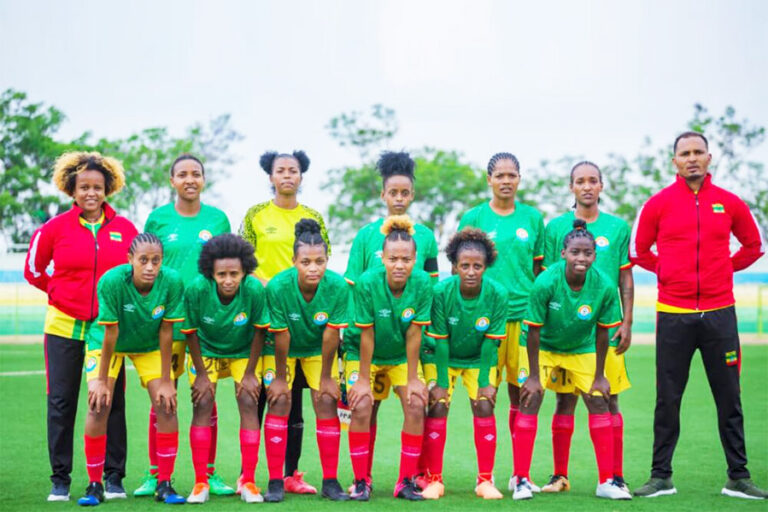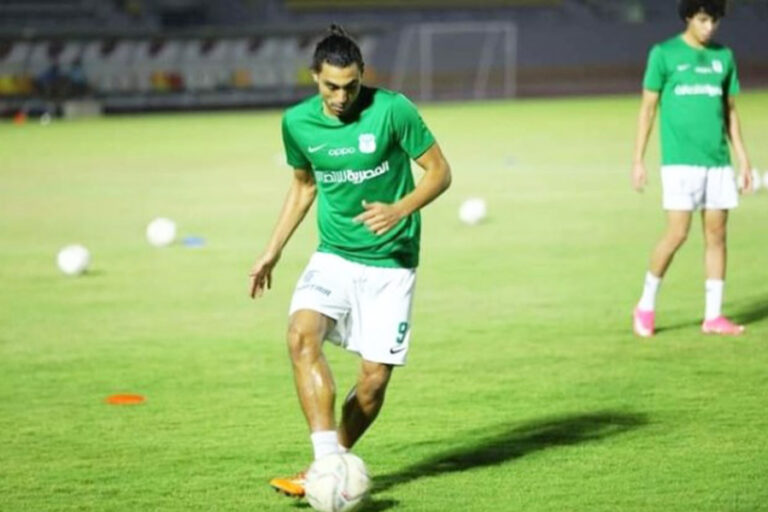Gonzalo Lira’s disappearance should have triggered outrage and calls for an investigation by the “freedom-loving” US government and media
By Scott Ritter
My personal journey into the drama-infused existence of Gonzalo Lira began in mid-February 2022, when I appeared as part of a panel discussion organized by Joe Lauria of Consortium News (CN), which included the British writer Alexander Mercouris.
It was just prior to the Russian “special military operation” kicking off in Ukraine. Alexander and I subsequently appeared on several CN-hosted panels to discuss the war in Ukraine, and in conversations following the broadcast he mentioned a fellow he called “Gonzo Lira” and asked if I followed him. I indicated that I did not, and Alexander replied that I should, as “Gonzo” resided in Kharkov, and had some first-hand insights into the conflict that I might find interesting. Alexander asked if he could forward my contact information to Gonzo Lira, and I agreed.
I must admit that I did not follow up on Alexander’s recommendation to follow Gonzo and had forgotten about our conversation about Mr. Lira when, sometime in late March, I was suddenly contacted by the man himself, who asked if I would agree to be interviewed by him for his YouTube channel. I did a quick Google search, and read several items about Gonzalo Lira, AKA Coach Red Pill, including a particularly unflattering article written by Mark Hay of The Daily Beast. I quickly decided that if Gonzo was making The Daily Beast uncomfortable, then I was more than happy to be interviewed by him.
The setup for the interview, which took place on March 30, was informative in its own right. Alexander’s colleague Alex Christoforou was providing technical assistance, and because of connectivity issues due to Gonzalo broadcasting from Kharkov (literally a war zone), the YouTube platform could not be accessed, and instead we shifted to Twitter Spaces (a somewhat ironic choice, given my later permanent suspension).
But the most interesting aspect of the pre-interview technical discussions was a to-and-fro between Gonzalo and Mr. Christoforou about Mr. Lira’s safety. Beyond the obvious reality of broadcasting from a city under attack (air-raid sirens were sounding in the background during this time), Gonzalo expressed a clear concern that he was being sought out by the Ukrainian Security Service (SBU). I opined that perhaps broadcasting from Kharkov might not be the wisest decision under these circumstances, a concern echoed by Mr. Christoforou, but this was dismissed by Gonzalo. “I’m taking precautions,” he said, without further elaboration.
The Twitter Spaces session was enjoyable, with Gonzalo asking relevant questions and, in the true spirit of the journalist/interviewer, allowed me to answer without any undue commentary from his end something so-called “professional” journalists in the mainstream media should do more often. According to Mr. Lira, it was “well received” by his followers.
Gonzo reached out to me again, on April 11, for a follow-up interview on his YouTube channel. This time, Mr. Christoforou was successful in surmounting the technical challenges surrounding Mr. Lira’s geographical realities, and the interview went off without a hitch. When we finished, Gonzo thanked me, and in the subsequent conversation, he relayed his concerns that the authorities in Kiev were not only displeased with what he had to say but were actively looking for him.
Gonzo’s pinned Tweet from March 26, in which he listed the names of eight Ukrainian politicians, journalists, dissidents, and human rights figures who had either been killed, arrested, or gone missing since the war with Russia had broken out, jumped out at me. The idea of having just completed a live-streamed interview lasting more some 77 minutes at a time when the Ukrainian SBU, which undoubtedly possesses considerable cyber skills sufficient to geolocate a lengthy online presence such as the YouTube broadcast we had just finished, bothered me especially in light of Gonzo’s own self-expressed concerns, and I said as much.
Gonzalo Lira was fatalistic about his future. “I know the risks,” he said. “And I take precautions.”
Gonzo’s last tweet was posted on his account (@realGonzaloLira, 54,400 followers) at 7.07am on April 15, 2022. “New Patrick Lancaster,” he wrote, referring to a US Navy veteran-turned war correspondent who has been actively reporting from the frontlines in the Donbass region of eastern Ukraine. “Must watch.”
“Only the guilty fear judgement,” Gonzo had written in his Twitter bio. “Only liars need stifle the truth.”
Gonzo posted Mr. Lancaster’s report on his Telegram account (over 89,000 subscribers) at 7.16am. The post has more than 130,000 views at the time of writing.
“Here I talk about whatever’s on my mind,” Gonzalo noted in his Telegram introduction. “Unvaxed – and if that makes you angry and makes you hope that I die soon, I want you to know that I have no such wish for you.”
No soldier believes that he or she will be shot until the bullet strikes home. And no political dissident or free speech advocate believes he or she will be silenced until the knock comes at their door.
I received a telephone call on Sunday, April 17 from a producer for George Galloway’s The Mother of all Talk Shows (MOAT). Gonzalo Lira was scheduled to appear as a guest, and he had gone missing. George wanted to know if I had heard from Gonzalo. Sadly, I had not.
On the same day, Max Blumenthal and Esha Krishnaswamy, writing for The Grayzone, published an article titled “‘One less traitor’: Zelensky oversees campaign of assassination, kidnapping and torture of political opposition” which, in light of Gonzalo’s disappearance, was not only timely but deeply disturbing.
Citing war-time necessity, Ukrainian President Volodymyr Zelensky has declared martial law and banned all real opposition parties (the neo-Nazi parties and organizations, however, remained untouched.) “The activities of those politicians aimed at division or collusion will not succeed, but will receive a harsh response,” Zelensky stated.
“As he wiped out his opposition,” Blumenthal and Krishnaswamy wrote, “Zelensky ordered an unprecedented domestic propaganda initiative to nationalize all television news broadcasting and combine all channels into a single 24-hour channel called ‘United News’ to ‘tell the truth about war.’”
The order directing this action was signed on March 18, 2022.
Zelensky, The Greyzone authors noted, had ominously warned that “there would be consequences for collaborators.”
And now Gonzo Lira had gone missing.
On April 19-20, Twitter user @Anabel_Villeroy posted a series of tweets compiling evidence that “Azov SU @botsmanua (i.e., Sergei ‘Boatswain’ Korotkikh) identified Serhiy Velychko, call sign ‘Chilli’, as Gonzalo Lira’s kidnapper.”
Korotkikh is a notorious member of the Azov Battalion who recently posted a video showing his men committing atrocities in Bucha on April 1, 2022.
According to the @Anabel_Villeroy Twitter account, Velychko was the commander of the “Azov Reconnaissance and Sabotage Battalion (a.k.a. KRAKEN unit) in Kharkov.” The tweet contained a number of screenshots from the @botsmanua account (which has since been removed from Twitter) bragging about the capture, possibly even death, of Gonzalo Lira.
Recognizing that this information did not constitute anything remotely resembling verified fact but enraged at the audacity of persons proclaiming to be affiliated with the Azov organization gloating about the death of Mr. Lira, I took to Facebook to give voice to my outrage.
“When Belarusian authorities,” I wrote, “pulled Roman Protasevich, a blogger who had served a combat tour in the neo-Nazi Azov Battalion before working for Radio Free Europe’s Belarus channel out of Prague, off an airplane in May 2021 on charges of inciting political opposition (roughly the equivalent of sedition), the world went crazy, accusing Belarusian President Alexander Lukashenko of trampling on free speech. Protasevich is alive and well, living under house arrest while awaiting trial.”
However, when reports emerged that Gonzo Lira, a California-born social media “influencer” who resided in Kharkov, Ukraine, and who published online content critical of the Ukrainian government, was kidnapped, tortured, and murdered by the Kraken Unit, part of the Azov Battalion affiliated with the Ukrainian Security Service (SBU), the West kept silent.
Free speech isn’t a one-way street. To remain silent in the murder of Gonzo Lira is to be complicit in his possible death, and the deaths of all journalists who pursue the truth, even if it runs counter to the mainstream narrative. Critical thinking should not be a death sentence. Unfortunately for Gonzo Lira, it seems it was.
The internet being the internet, my post was immediately cited as my “confirmation” that Gonzalo Lira had, in fact, been kidnapped and murdered by the SBU. I quickly sent out a follow-on post to correct the record.
“A point of clarification,” I wrote, “I have no direct evidence that Gonzalo has been killed. I was clear I was referring to ‘reports emerging’ about his demise. But Gonzo said any disappearance of more than 12 hours should be treated as if something bad had happened to him. It’s been five days. If this had been a New York Times reporter disappearing in Russian-controlled territory, it would be headline news especially if a Chechen ‘hunter killer’ team had taken credit for his death. But with Gonzo silence. Which was the whole purpose of the post: To raise awareness about his disappearance.”
There is an increasing outcry from independent media about Mr. Lira’s disappearance, and the Chilean government (Lira was a dual citizen of the US and Chile) has stated that it has been in touch with the “relevant entities” in Ukraine about Gonzalo’s disappearance.
But there is a shocking silence in the mainstream media. One only need recall the justified outcry in 2018 over the disappearance and murder of Jamal Khashoggi, a Saudi journalist critical of his government who worked for the Washington Post, to see the double standards. As Mark Crispen Miller, a New York-based academic and media critic, noted in his Substack, “Whatever they think, those of us who still have democratic principles, including a belief that journalists (and that means not just “credentialed” members of the press, but anyone who seeks out, and reports, the news) should not be snatched and killed for what they tell us, must see Gonzalo Lira’s disappearance… as a bad sign for all of us.”
That the US government has not demanded that President Zelensky launch an immediate investigation into the fate of Gonzalo Lira is a travesty. That the mayor of Kharkov, Igor Terekhov, whose approval would be required for any SBU operation targeting Mr. Lira, hasn’t been called out by name by the collective of journalists, American and foreign alike, to account for the actions of Sergey Velichko and the Kraken Unit, is hypocrisy in its highest form especially given the insistence by these same entities for similar investigations into allegations of the suppression of journalistic free speech in Russia.
“What would things have been like if every security operative,” Aleksandr Solzhenitsyn wrote in his epic work, The Gulag Archipelago, “when he went out at night to make an arrest, had been uncertain whether he would return alive and had to say goodbye to his family? Or if, during periods of mass arrests, as for example in Leningrad, when they arrested a quarter of the entire city, people had not simply sat there in their lairs, paling with terror at every bang of the downstairs door and at every step on the staircase, but had understood they had nothing left to lose and had boldly set up in the downstairs hall an ambush of half a dozen people with axes, hammers, pokers, or whatever else was at hand?”
What Solzhenitsyn called “the cursed machine” would have “ground to a halt,” he believed, “if…if…”
But there was no resistance. “We didn’t love freedom enough,” Solzhenitsyn lamented. “And even more we had no awareness of the real situation. We purely and simply deserved everything that happened afterward.”
We can’t ambush those who took Gonzalo Lira in the staircase of his Kharkov apartment. But we can call out Zelensky’s “cursed machine” for the crimes it is committing every day in defense of a perverted vision of Ukrainian nationalism that has mainstreamed the odious ideology of Nazi Germany, giving voice to its hate-filled logic, and empowering its minions to silence the voices of those who, like Gonzalo Lira, dared speak truth to power.
Don’t remain silent in the face of the ongoing collective effort to silence dissent. Become the “ambush in the stairwell.” Otherwise, free speech and the ideas manifested in that concept will die, and there will be no one left with the moral capacity to mourn its loss.
And we will have deserved everything that subsequently transpires.
Scott Ritter is a former US Marine Corps intelligence officer and author of ‘SCORPION KING: America’s Suicidal Embrace of Nuclear Weapons from FDR to Trump.’ He served in the Soviet Union as an inspector implementing the INF Treaty, served in General Schwarzkopf’s staff during the Gulf War, and from 1991 to 1998 served as a chief weapons inspector with the UN in Iraq. Mr Ritter currently writes on issues pertaining to international security, military affairs, Russia, and the Middle East, as well as arms control and nonproliferation.





